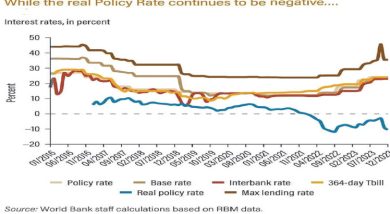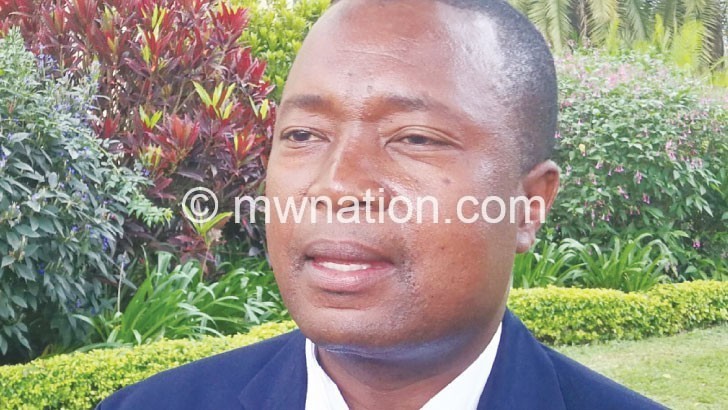Poly moves to develop Malawi through applied sciences

The Malawi Polytechnic principal, Grant Kululanga argues Malawi will fast track its development by focusing on applied science programmes which are relevant to the industry’s needs.
Speaking at Hippo View Lodge in Liwonde, last week during a consultative workshop in module development for postgraduate master’s programmes, Kululanga argued that one of the key factors behind the economic growth of the Asian economies is their emphasise on applied sciences.
According to the Polytechnic, a constituent college of the University of Malawi, tentatively early next year it will roll out four masters programmes in public health engineering, environmental health, occupational health and safety and health communication and behaviour change.
Kululanga, in an interview on the sidelines of the workshop which sought views from stakeholders on the curricula of the programmes, argued that the programmes that the college will introduce will be relevant to the industry because they are demand driven.
“Since the programmes are demand driven, we need to scout so that when we graduate the students they are relevant and are absorbed into the industry. We do not want programmes that are irrelevant to the industry,” said Kululanga adding that the workshop included experts from both the private and the public sectors.
Arguing the relevance of the programmes to Malawi’s economic development, Kululanga noted that the country has one of the lowest concentration of applied science graduates in the world and in the region which partly explains the poverty levels in the country.
He further argued that through the addition of more programmes in applied sciences the country’s economic development will be fast tracked.
Representing the National Commission for Science and Technology (NCST), Health Research Capacity Strengthening Initiative (HRCSI) programme manager, Mathildah Chithila, noted that the programme falls within the commission’s mandate.
She noted that the commission’s mandate includes promotion, supporting, coordination and regulation the development and application of science, technology and innovation so as to create wealth in order to improve quality of life.
According to the Polytechnic, through a K207 million institutional capacity grant was awarded to Water Supply, Sanitation, Health and Appropriate Technology Development in Malawi (Washted), a centre at Polytechnic by the NCST through HRCSI.
Through the programme the college will enhance the capacity of academic staff at the Polytechnic to undertake collaborative multi-disciplinary research and instigate health and health related postgraduate courses to improve professional competency in the health and Wash sector.
The college will introduction new health and health related postgraduate masters’ programmes which will accelerate research amongst academic members of staff and students at Polytechnic so that they are responsive to the needs of the allied health-care industry and its practitioners in Malawi.
The programme will also bring together junior biomedical scientists, geographers, public health engineers, environmental health and health communication experts at the Polytechnic and apply a multi-disciplinary approach to address and solve the environmental health problems.
The college also noted that the programme will also introduce state of the art research and Information Communication and Technology (ICT) equipment that are being acquired through this grant which will hopefully curb brain drain and will motivate members of staff to stay and do quality research as is the case in other international institutions.
The programme will also run workshops and conferences right at Polytechnic as opposed to the tradition of hiring conference.
The college argued that the advantages of bringing Polytechnic closer to our stakeholders and thereby raising Polytechnic’s profile and will reduce expenses that we normally incur when organising conferences and workshops.
The Polytechnic noted that the grant will enhance research thereby increase competitiveness for research grants in health allied and water supply sanitation and health sectors, thereby tapping expertise from collaboration with international universities and other colleges and Universities within Malawi.






That’s a wonderful development… They must also consider introducing 1 for postgraduate studies in I.T.
Much as I appreciate the Polytechnic’s initiative to introduce programs of some relevance to Malawi’s development, I also believe that Malawi’s fast development can be centered on placing much emphasis on programs directly related to industrialization and innovation. The polytechnic in Blantyre should have been made Malawi’s center of innovation and technology with the introduction of technology-based engineering programs not just civil and mechanical.This should have been in effect soon after independence.
A country develops in phases.It starts with agri-industry based on agricultural produce and light industry, and then transitions into a heavy industrial power.The dominance of agriculture soon after independence should have been met with the introduction of programs like chemical engineering and polymer engineering.These two programs are very important for the country’s growth in food and beverages,plastic industry,chemicals,pharmaceuticals,oil industry,and even electronics.The light industry could also be supported by such programs including computer engineering and information technology.The poly placed much emphasis on civil and mechanical engineering a thing which hasn’t helped the country much.Mechanical engineering is more associated with heavy industry which Malawi doesn’t have except electricity production and some other few.Of course Malawi needed mechanical engineering but it shouldn’t have been prioritized at the expense of chemical,polymer, and computer engineering.Civil engineering is also a must for any country,but I suggest there must be an introduction of a highway and structural engineering programs in order to modernize roads and building construction.Diversity in engineering faculties widens entrepreneurship prospects and strengthens the industrial base.
When one looks at the economies of most Asian countries,it will be found out that all these programs above are part of the reasons those countries are advanced in industry and innovation.Even if a country is blessed with minerals it can not develop if it doesn’t focus on innovation and industries.Take for example car making,it is an everlasting income generating industry because it combines engineering and innovation.A mineral will at one time cease to offer benefits to a country because it is in depletion.Car making is also a beneficiary of recycling technology because most car parts including body get recycled after the car is no longer in use.So this type of industry is an example of technology and innovation in control.
Malawi under late Dr Hastings Banda should have gone the Singapore route in order to avoid being left behind in development.Our neighbors Zambia and Zimbabwe were lucky to have minerals found by the Europeans but we should have beaten them through innovation and industrialization.Singapore grew by creating technology based programs in universities and then establishing industrial zones.Afterwards,the country focused on importing raw materials like oil,farm produce etc and processed them into competitive products for export.The problem with African countries is that they have it as a common belief that you only develop if you have minerals and oil or petroleum,that’s not true.Singapore doesn’t produce petroleum but it imports it and makes expensive products out of it,what a smart country! Reliance on minerals and petroleum just makes countries not to be creative because they think they have resources to generate income.
Interesting discussions. In Malawi the country is not short of thinking minds, I am confident that given the right solution framework we have the team to move the country to the next level. I completely agree that engineering must be expanded to cover broader professional categories. However, we must not put the oxcart before the bull to criticise the Polytechnic for the courses it has been offering of civil, electrical and mechanical. These are core engineering categories around the world with electrical branching off to computer, electronics, optical and power engineering. Civil branches off to geotechnical, environmental, structures and transport engineering. Mechanical covers Manufacturing/production, Automotive, Aeronautical, Thermal, Acoustics and Mechatronics engineering.
Education is and must remain a pull system designed to meet the needs of the industry. Training nanotechnology engineers when there is no nano companies to absorb them into work would be disastrous. Where do they go post graduation? Given our limited resources, we have to pick and choose. Until now, it was unwise to train nuclear engineers on the proviso that we can acquire nuclear energy. Therefore, Binah, we face that dichotomy. I agree with your sentiments. I just want to make sure that people do not start thinking that we do not have chemical engineers and hence we cannot develop or to say lack of development is all Poly’s fault, it is not. We are ready to move the country to the next level. Kayelekera is the case in point.
As a nation, we must start industrialisation at the right starting point. Through learning by doing I believe we have enough repertoire of engineering offering right now to transform the country. Engineering is the spearhead of development through industrialisation. We have a strong Accounting/financial body to support that. People may not realise the strong co-integration that exists between engineering and accounting to drive industrialisation forward. Today Malawi needs manufacturing that draws on all of the above engineering categories and more producing polymers, composites, metals, chemicals and ceramics. Macroeconomic management creates an environment conducive to investment.
My view is once we have put a national development program that will trigger an industrial revolution, we will face a severe shortage of all levels of engineers in both skill set and quantity. The same shortage will apply to other graduates of UNIMA as they will all be absorbed at an alarming rate by the rapidly booming economy then.
We must resist the temptation to increase imports for consumption as they worsen current account deficit and devalue the kwacha.
If you are going for most excellent contents like me, simply pay
a visit this web site everyday since it presents quality contents,
thanks